Working together to improve the availability of labour statistics in support of evidence-based policies
UN Women
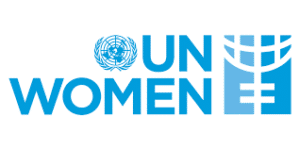
In 2019, the ILO partnered with UN-Women to create a series of novel labour market indicators, key to gender analysis. The main innovation resulting from this project was the inclusion of a variable on the household type in ILOSTAT, revealing how people’s labour market outcomes change based on their family situation (whether they are single or not, whether they have children, the number and age of children, etc.).
Mastercard Foundation
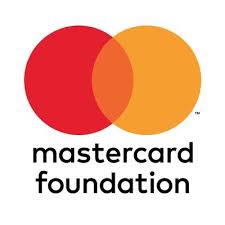
The ILO and the Mastercard Foundation launched a project to provide comprehensive national-level data on youth in the labour market, including indicators on the transition from school to work. During the one-year project, the Mastercard Foundation is supporting the ILO to create a new, regularly updated database, called YouthSTATS.
Bill & Melinda Gates Foundation

The Bill & Melinda Gates Foundation have provided funding to the ILO to engender statistical standards on the informal economy. The three-year project includes identifying gender gaps in informality statistics and developing methods to address them, as well as supporting testing of labour force survey questions and methods in at least two countries during 2021 and 2022. The project will work to ensure gender considerations are integrated in the revised standards for informality statistics and accompanying guidance and tools.
UN Volunteers

In November 2017, the ILO partnered with the United Nations Volunteers (UNV) programme to advance survey methods for producing statistics on volunteer work. Volunteers contribute their time and skills to help others through organizations such as NGOs, or directly in their communities. Between 2018 and 2021 the ILO and UNV will work with interested national statistical offices to test a module on volunteer work suitable for attachment to national labour force surveys. We will also release updated practical guidance and support countries to include the module in their labour force surveys.
Global Partnership for Sustainable Development Data
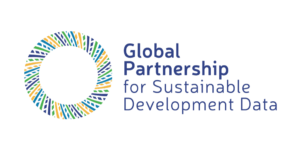
The Global Partnership for Sustainable Development Data is a multi-stakeholder network of more than 150 data champions harnessing the data revolution for sustainable development. Its members represent the full range of data producers and users, including governments, companies, civil society groups, international organizations, academic institutions, foundations, statistics agencies and data communities. The Global Partnership serves as a convener, connector and catalyst, encouraging collaboration among stakeholders to fill critical data gaps and ensure data is accessible and usable.
Data2x, FAO and the World Bank
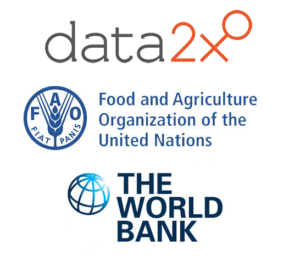
In 2014, the ILO partnered with the Food and Agriculture Organization and the World Bank under the Women’s Work and Employment Partnership, supported by Data2X, with the goal of addressing challenges in measuring work and employment to ensure that women are counted. The partnership supports research in two core areas: subsistence production and unpaid care work.
Project activities focus on providing evidence on good practices and for contributing to global work on time-use statistics under the leadership of the United Nations Statistics Division.
Statistical Information System Collaboration Community
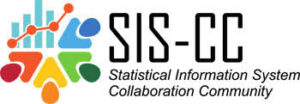
The ILO is a member of the Statistical Information System Collaboration Community (SIS-CC) which is a group of statistical organisations sharing similar strategic objectives, and mutualising resources and ideas to co-innovate and co-produce state-of-the-art digital solutions to support official statistics.
The main product of the SIS-CC is .Stat Suite, a standard-based, componentised, open source platform for the efficient production and dissemination of high-quality statistical data. The product is based on the General Statistical Business Process Model (GSBPM) and the Statistical Data and Metadata eXchange (SDMX) standards.
Statistics Korea
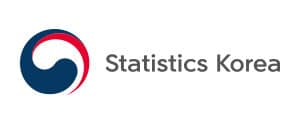
In 2015, ILO and Statistics Korea (KOSTAT) launched a collaboration to promote advances in international labour migration statistics (ILMS) globally and in the Asia Pacific Region. The collaboration includes support to improve the global availability of ILMS statistics through the ILO’s ILMS database; building national capacities in ILMS data production and reporting through a joint annual workshop for staff from National Statistics Offices and line Ministries from 22 priority countries in Asia and the Pacific; research and publication of case studies to document good country practices and promote knowledge sharing; and the preparation of practical tools and online training courses, including on measuring migrant recruitment costs for SDG 10.7.1. In June 2024, to celebrate the 10th Anniversary of the partnership, the ILO and KOSTAT signed a new Memorandum of Cooperation extending the partnership for a new five year period (2025-2029) with a wider programme of work that will include new activities in ILMS and in emerging topics, with a view to foster continued innovation in labour statistics.
US Census Bureau

Between 2015 and 2017, the ILO conducted a 10-country pilot study to develop evidence on how best to update national labour force surveys to produce key headline labour market indicators aligned with the new standards adopted by the International Conference of Labour Statisticians (ICLS) in 2013. The results of the qualitative and quantitative evaluation of the study have been consolidated in a number of guidelines and tools put together under the “LFS Resources” project. Many of these tools related to data collection (CAPI and PAPI methods), field operations management and microdata preparation have been developed in CSPro with the close collaboration of the United States Census Bureau in training supporting our staff.
Manpower Research & Statistics Department

The ILO and the Manpower Research and Statistics Department of the Ministry of Manpower Singapore are partnered through a 2022 Memorandum of Understanding to further collaborate and mutually build capacity on two areas, 1) Digital Platform Employment and 2) Revision of the International Standard Classification of Occupations (ISCO). The former contributes to the development of a new digital statistical framework for the measurement of digital platform employment, building on existing work done by the ILO and OECD. The latter concerns the updating of ISCO using big data, piloting innovative approaches involving the use of natural language processing and machine learning techniques.
Ford Foundation
The Ford Foundation is supporting a project lead by the ILO in collaboration with Women in Informal Employment: Globalizing and Organizing (WIEGO) to improve data on informal employment and gender in the Arab Region. The project started in 2020 and includes pilot testing in two Arab states aimed at creating improved gender-sensitive data collection tools and recommendations for the region aligned with latest statistical labour standards.
